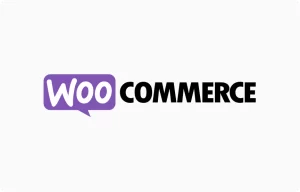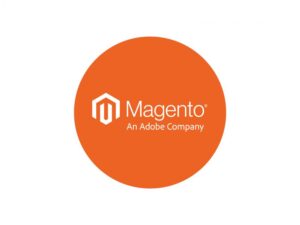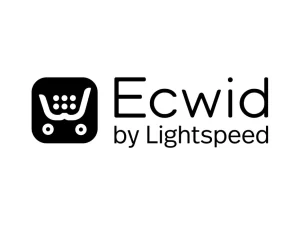Did you know that Shopify powers over 5.4 million websites worldwide? But it’s not the only player in town! Whether you’re looking to launch your first online store or considering a switch from your current platform, understanding the top competitors of Shopify is crucial. In this article, we’ll dive into the exciting world of e-commerce platforms and explore the best alternatives to Shopify. From user-friendly interfaces to robust features, we’ve got you covered. Let’s embark on this e-commerce adventure and find the perfect platform for your business!
Top Competitors of Shopify
1. WooCommerce

Website – https://woocommerce.com/
WooCommerce stands tall as one of the most popular Shopify alternatives, especially for those already familiar with WordPress. This open-source e-commerce plugin transforms your WordPress site into a fully functional online store with just a few clicks.
Key Features:
- Seamless WordPress integration
- Extensive customization options
- Large library of themes and plugins
- SEO-friendly structure
WooCommerce’s pricing structure is notably different from Shopify’s. While the core plugin is free, costs can add up with premium themes, plugins, and hosting. However, for those comfortable with WordPress, WooCommerce often proves more cost-effective in the long run.
Ideal for: Small to medium-sized businesses, especially those already using WordPress. It’s particularly great for stores that need unique customizations or have complex product catalogs.
2. BigCommerce

Website – https://www.bigcommerce.com/
BigCommerce has carved out a niche as a robust platform for mid to large-sized businesses looking for scalability without the complexity of some enterprise solutions.
Standout Features:
- Multi-channel selling capabilities
- Advanced SEO tools
- Robust API for custom integrations
- No transaction fees on any plan
BigCommerce’s pricing is competitive with Shopify, offering tiered plans that cater to businesses of various sizes. While it may be overkill for very small businesses, it shines for those expecting rapid growth or dealing with high sales volumes.
The platform’s app ecosystem, while not as vast as Shopify’s, offers a wide range of integrations to extend functionality. BigCommerce is an excellent choice for businesses that need a powerful, scalable solution right out of the box.
3. Magento

Website – https://business.adobe.com/products/magento/magento-commerce.html
Now part of Adobe Commerce, Magento is renowned for its flexibility and power, making it a go-to choice for large enterprises and businesses with complex needs.
Advanced Features:
- Unparalleled customization options
- Robust multi-store management
- Advanced B2B functionality
- Global selling capabilities
Magento’s pricing model is significantly different from Shopify’s. While there’s an open-source version, most businesses opt for Magento Commerce, which comes with a heftier price tag. The total cost of ownership can be high, considering the need for dedicated hosting and often, specialized developers.
However, for large businesses needing a highly customized solution, Magento offers a level of flexibility that’s hard to match. It’s ideal for enterprises with complex operations, multiple stores, or unique business models.
4. Wix

Website – https://www.wix.com/
Wix has evolved from a simple website builder to a capable e-commerce platform, offering an intuitive solution for small businesses and creatives.
User-Friendly Features:
- Drag-and-drop store builder
- AI-powered design assistance
- Built-in marketing tools
- Extensive app market
Wix’s pricing is generally lower than Shopify’s, making it an attractive option for small businesses and startups. Its ease of use is a significant advantage, allowing even tech novices to create beautiful online stores quickly.
While Wix may lack some of the advanced features of dedicated e-commerce platforms, it’s an excellent choice for small to medium-sized stores, especially those prioritizing design and ease of use.
5. Squarespace

Website – https://www.squarespace.com/
Squarespace has built its reputation on stunning designs, and its e-commerce offerings are no exception. It’s a go-to platform for businesses where aesthetics are paramount.
Design-Focused Features:
- Award-winning templates
- Integrated blogging platform
- Built-in email marketing tools
- Mobile-optimized checkout
Squarespace’s pricing is comparable to Shopify’s lower tiers, offering good value for small to medium-sized businesses. While it may not have the extensive feature set of some dedicated e-commerce platforms, its design capabilities are unmatched.
Ideal for: Creatives, small businesses, and brands where visual presentation is crucial. It’s particularly well-suited for businesses that combine content marketing with e-commerce.
6. PrestaShop

Website – https://prestashop.com/
PrestaShop has gained significant traction, especially in Europe, offering a robust open-source solution for online retailers.
Key Features:
- Multi-language and multi-currency support
- Extensive module marketplace
- Strong community support
- Compliance with European regulations
As an open-source platform, PrestaShop’s core is free, but costs can accumulate with hosting, themes, and modules. Compared to Shopify’s all-in-one pricing, PrestaShop can be more cost-effective for businesses willing to manage their hosting and setup.
PrestaShop is an excellent choice for businesses targeting European markets or those needing a highly customizable, cost-effective solution.
7. Volusion

Website – https://www.volusion.com/
Volusion, one of the oldest players in the e-commerce space, continues to evolve and offer solid solutions for online retailers.
Notable Features:
- Built-in SEO tools
- Comprehensive analytics
- No transaction fees
- 24/7 support
Volusion’s pricing is competitive with Shopify, offering tiered plans to suit different business sizes. Its long history in the industry translates to a stable, feature-rich platform with a focus on helping businesses grow.
Ideal for: Small to medium-sized businesses looking for a reliable, no-frills e-commerce solution with strong support and built-in marketing tools.
8. Shift4Shop (Formerly 3dcart)

Website – https://www.shift4shop.com/
Rebranded from 3dcart, Shift4Shop is making waves with its comprehensive feature set and attractive pricing model.
Unique Selling Points:
- Free plan for US-based merchants
- Extensive built-in features
- Strong focus on SEO
- Unlimited products, bandwidth, and staff accounts
Shift4Shop’s pricing model, especially its free plan, makes it a compelling Shopify alternative. It offers enterprise-level features at a fraction of the cost, making it accessible to businesses of all sizes.
Best for: US-based merchants looking for a feature-rich platform without the high costs typically associated with advanced e-commerce solutions.
9. OpenCart

Website – https://www.opencart.com/
OpenCart offers a lean, efficient solution for businesses looking for simplicity and extensibility.
Key Features:
- Low resource requirements
- Large marketplace for extensions
- Multi-store functionality
- Easy to customize
As an open-source platform, OpenCart is free to download and use, with costs primarily coming from hosting, themes, and extensions. This can make it significantly more cost-effective than Shopify for businesses comfortable with a bit more technical involvement.
Ideal users: Small to medium-sized businesses with some technical know-how, looking for a lightweight, customizable e-commerce solution.
10. Ecwid

Website – https://www.ecwid.com/
Ecwid stands out with its ability to integrate e-commerce functionality into existing websites and social media platforms.
Standout Features:
- Easy integration with existing websites
- Supports selling on multiple platforms simultaneously
- Automated tax calculations
- Responsive storefronts
Ecwid’s pricing structure includes a free plan for very small businesses, with paid plans comparable to Shopify’s lower tiers. Its flexibility in integrating with various platforms makes it a unique option in the e-commerce space.
Best use cases: Businesses looking to add e-commerce to an existing website, or those wanting to sell across multiple channels with a single inventory management system.
Conclusion..
As we’ve seen, the e-commerce landscape is brimming with impressive Shopify alternatives, each offering unique features to cater to different business needs. From the open-source flexibility of WooCommerce to the enterprise-grade power of BigCommerce, there’s a platform out there for every online entrepreneur.
Remember, the best choice depends on your specific requirements, budget, and growth plans. Consider factors like:
- Your technical expertise
- The size and complexity of your product catalog
- Your budget for initial setup and ongoing costs
- The importance of design customization
- Your need for specific features or integrations
We encourage you to explore these top Shopify competitors further, take advantage of free trials, and find the perfect fit for your e-commerce dreams. With the right platform, you’ll be well-equipped to build, grow, and scale your online business. Happy selling!
Also Read: What is Shopify ? Shopify Business Model And How Does It Make Money
To read more content like this, subscribe to our newsletter




